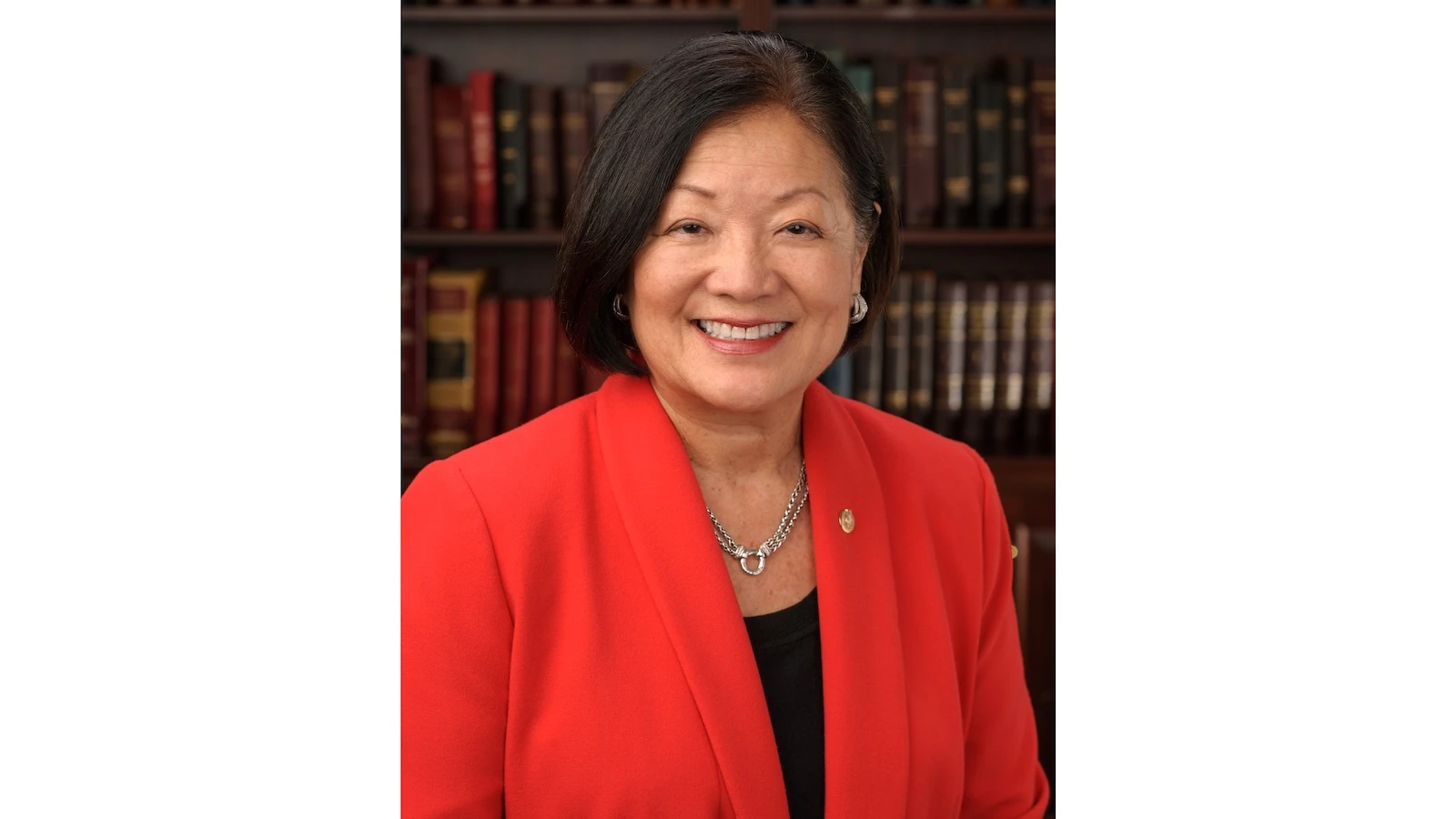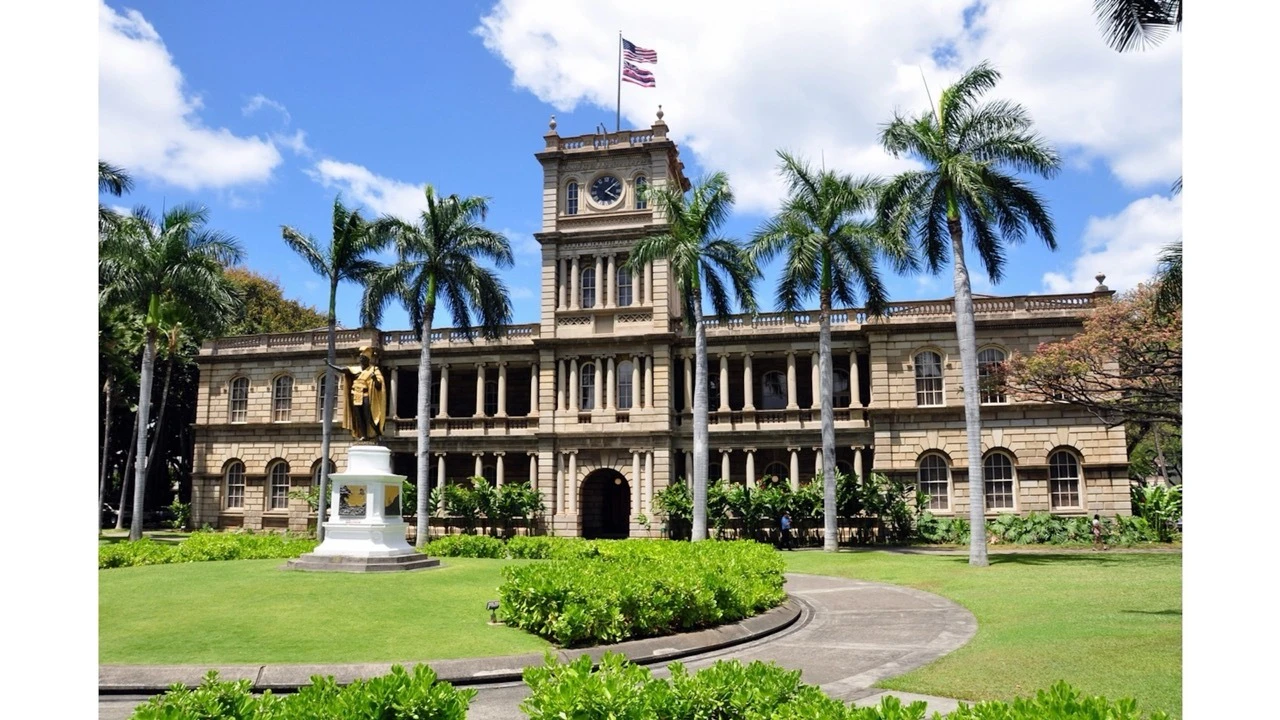Hundreds gathered Tuesday to show support for Kamehameha Schools after a lawsuit was filed challenging its admissions policy.
Virginia-based nonprofit Students for Fair Admissions filed on Monday the lawsuit it had promised a month ago: calling Kamehameha Schools’ admissions policy illegal race-based discrimination, the suit demands that a court issue a permanent injunction from considering applicants’ Native Hawaiian ancestry when making admissions decisions.
The suit, filed in the U.S. District Court for the District of Hawai‘i, claims that the admissions policy — which KS states gives preference to applicants with Native Hawaiian ancestry “to the extent permitted by law” — has prevented any non-Native Hawaiian student from attending in at least 15 years.
In response, KS assured parents on Monday that the school is “resolved to vigorously defend our admissions policy and will engage ever legal and operation resource to protect [it].”
“The facts and the law are on our side and we are confident that we will prevail,” read the KS letter.
That message was reinforced at a Tuesday rally before ‘Iolani Palace, where scores of attendees sang and chanted in support of the school.
Crystal Kauilani Rose, chair of the KS Board of Trustees, told attendees that she had helped KS fight against the “Doe Lawsuits” — two suits in which non-Hawaiian teenagers sought admission to KS but were ruled against by a U.S. District Court judge — 20 years ago and is prepared to do so again.
“We understand the law,” Rose said. “We understand the facts. And the law and the facts are on our side … we are warriors, we are fighters and we know how to do it.”
KS won the first Doe suit, filed in 2003, by arguing that it is privately funded and exists to correct educational imbalances that Native Hawaiians face compared to other ethnicities.
The U.S. District Court found in the first Doe suit that KS is in a unique situation, as the U.S. has a special trust with Native Hawaiians after Congress adopted the Apology Resolution — which acknowledged that the U.S. overthrow of the Hawaiian Kingdom was unlawful — and that KS’ policies align with Congress’ own goals of remedying the systemic disadvantages faced by Native Hawaiians following the state’s annexation.
But the latest suit argues that KS won that first Doe suit “by the narrowest of margins” and only prevented it from being appealed to the U.S. Supreme Court by paying the student $7 million.
The suit claims to represent two Hawai‘i families — identified only as Family A and Family B — who would prefer to allow their daughters, respectively in ninth and second grade, to attend KS rather than public schools. However, the suit states that they have not applied, as their children are not Native Hawaiian and believe they would not be accepted.
In its explanation of the background the case, the suit takes great pains to highlight abuse leveled at the plaintiffs and Edward Blum, founder of Students for Fair Admissions. About eight pages of the 56-page suit enumerate various comments and voicemails strewn with profanity, racial slurs and death threats directed at the plaintiffs and Blum following the announcement of the lawsuit.
The first specific legal argument in the case takes aim at the contract that parents are required to sign upon their child’s admission to KS. Given that KS’s admission’s process does favor specific people by race, the argument goes, these contracts are inherently “race-based contracting,” which is illegal.
The second argument claims that KS’ policy cannot stand as a valid affirmative action policy, given that it bars practically any non-Native Hawaiian applicant and has no stated end date.
At the same time, the suit the need for any affirmative action policy to benefit Native Hawaiians may have passed, as educational outcomes for Native Hawaiian students have improved over the last 20 years. The suit goes on to state that public schools in the state are chronically underfunded, suggesting students of other ethnicities would benefit from a more open admissions process at KS.
The suit also argues that creating a statutory carveout so as to make an exception for KS would also be unconstitutional.
So far, no hearing for the suit has yet been scheduled.
For the latest news of Hawai‘i, sign up here for our free Daily Edition newsletter.





